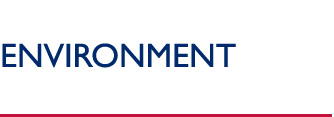Water Supply, Sanitation, and Wastewater Management (WSSWM)
More than 1.2 billion people (one in every four people in the developing world) currently lack access to a safe water supply, and two in five have no access to improved sanitation (connection to a public sewer or septic system, or access to a pour-flush latrine, simple pit latrine, or ventilated improved pit latrine).
Safeguarding Human Health
This makes the successful management of freshwater resources a critical health issue. Insufficient water quantity, poor water quality, inadequate sanitation, and poor personal hygiene practices are directly responsible for the vast majority of cases of diarrheal disease, which kill over 2 million children each year.
In addition, water and wastewater management has an impact on insect populations, most notably mosquitoes that carry the parasite that causes malaria. Malaria alone kills between 1 and 2.7 million people each year, with ninety percent of these deaths in sub-Saharan Africa, mainly among children.
USAID Investments in WSSWM
USAID’s investments in WSSWM represent the largest category of water-related activities. These investments reflect the urgent need to provide safe and affordable domestic water supply that is effectively integrated into overall water resources management, and the inclusion of sanitation and hygiene promotion to protect drinking water sources, the environment, and human health.
USAID investments and activities in technical capacity building and good governance and finance practices for the water sector successfully catalyze alliances and partnerships capable of leveraging significant sums of money to fund large scale water delivery and wastewater treatment systems.
USAID’s investments in water supply, sanitation, and wastewater treatment includes four categories of activities:
- Water Supply
- Sanitation
- Wastewater Treatment
- Industrial Pollution Control
Water Supply
Water Supply activities are designed to provide or improve access to and availability of clean drinking water to urban and rural populations. These activities include the provision of water delivery systems, alleviation of sources of contamination through both large scale water treatment and small scale or household point of use treatment, and source protection through well improvement or rehabilitation (larger scale, basin-wide source water protection is captured by a separate sub-category activities, IWRM and Watershed Protection).
Water supply also includes addressing the need to improve the capacity of city governments and private sector entities to deliver potable water and supporting environmental infrastructure services in a sustainable, cost-effective, and water-efficient manner, and to develop related legal, regulatory processes.
Recently, USAID has put an increasing emphasis on investments in “software”—i.e. the transfer of technology and technical assistance to strengthen institutions and build capacity of local and national governments to monitor, predict, and manage supply and demand for water resources and enhance equitable allocation to all sectors of development.
Sanitation
USAID investments relating to sanitation are designed to provide or improve access to cost-effective options for domestic waste disposal systems for slum communities and rural settings. These investments include the provision of household connections to wastewater conveyance systems, and the necessary institutional, policy, and regulatory reform measures needed to maintain such infrastructure. It also includes a strong hygiene improvement component with country-based initiatives to promote hand washing, safe disposal of excreta and safe water handling at the community and household levels. Health sector activities in hygiene improvement also make an important contribution to water supply and sanitation activities.
Wastewater Management
Wastewater Management includes the collection, conveyance, treatment and return to the environment of wastewater. Municipal wastewater contains a broad spectrum of contaminants from different sources, including human sewage, “gray water,” pesticides, detergents, lubricating oils, and industrial wastes. The threat to human health and ecosystems from untreated wastewater is especially acute in the developing world where wastewater treatment infrastructure is severely lacking. Fortunately, investments in wastewater treatment can provide a high return, with benefits that have many social, economic, and environmental dimensions. Activities include regulatory and policy reform, construction, rehabilitation and management of wastewater facilities.
Industrial Pollution Control
These activities aim to manage and reduce human and environment exposure to hazardous and toxic wastes in the aquatic environment, including their regulation, handling, transport, disposal, storage, and cleanup. USAID investments in industrial pollution control category includes water pollution abatement; eco-toxicity, pollution prevention; cleaner production technologies; total quality management; ground and surface water protection and cleanup; health and environmental risk assessment and priority setting; legal services for enforcement of spills and emergency management; and environmental regulation, permitting testing and monitoring.
Back to Top ^
|


